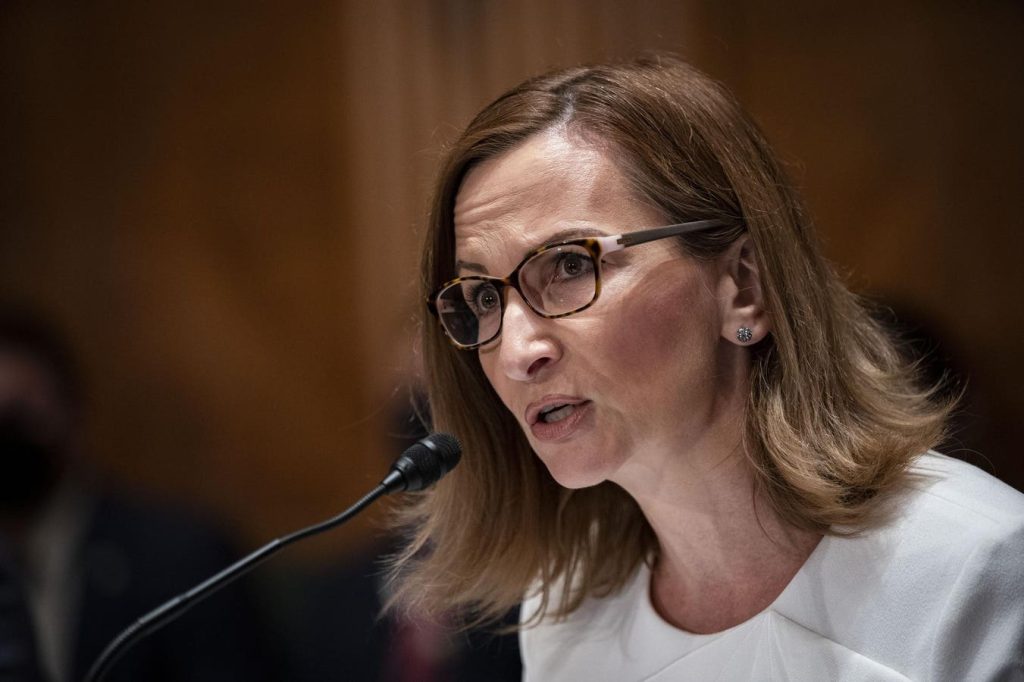At least 200,000 individual fintech customers have lost access to their money as a result of the collapse of Synapse Financial Technologies – a situation one lawyer for an affected fintech called “a house on fire” in bankruptcy court today. During that hearing, U.S. Bankruptcy Court Judge Martin R. Barash, of the Central District of California, agreed to appoint an independent Chapter 11 trustee to oversee Synapse, removing existing management from control.
After the hearing, Barash approved the appointment as trustee of former FDIC Chairman Jelena McWilliams, currently head of the Financial Institutions Group and managing partner of the Washington, D.C. office of law firm Cravath, Swaine & Moore. Prior to joining the FDIC in 2018, she was executive vice president and chief legal officer at Fifth Third Bank
Fifth Third Bank
.
Barash said his priority is getting the consumers access to their money, but made no predictions of how soon that might happen. Earlier, he had tried, unsuccessfully, to get federal banking regulators involved in resolving the mess. “I don’t think there’s anything more important now than getting end users their funds. Full stop,’’ Barash said today, adding that he felt awful “when you hear people who come and tell us they can’t buy food, they can’t make their first mortgage payment.”
“This is a house on fire,’’ said Michael Gottfried, a lawyer representing Yotta Technologies, one of the fintechs whose customers have lost access to their funds.
According to San Francisco-based Synapse, which acts as an intermediary between traditional banks and fintechs that want to offer bank and bank-like services, as of the start of the year, it had 100 fintech clients with about 10 million end customers. It is not clear how many of those fintechs were still doing business with Synapse when it filed in late April for Chapter 11 bankruptcy, which theoretically allows management of a troubled company to keep running it–either to rehabilitate the business or to wind it down in an orderly fashion. Synapse’s original Chapter 11 plan was to sell its operating assets to payment processor TabaPay, which would have taken on many of its 100 or so employees and serviced its clients.
That deal fell through and on May 11th, one of Synapse’s bank partners, Arkansas-based Evolve Bank & Trust, cut off individual consumers’ access to their accounts and debit cards, saying it couldn’t access the records it needed at Synapse to determine the amount in each individual’s account. In a filing to the bankruptcy court late yesterday, Evolve placed the number of affected fintech customers at 200,000. Synapse says access to its records has been restored, but Evolve and Synapse’s other bank partners now contend they can’t rely on Synapse’s numbers.
In addition, the banks have frozen Synapse’s access to the small amount of funds it had left to pay its employees. Yesterday, Synapse CEO and founder Sankaet Pathak said in a written declaration to the court that he had already laid off all but 18 employees and six contractors, and would have to lay off the rest today.
At the hearing today, Barash made clear that the appointment of the Chapter 11 trustee is designed to keep Synapse’s computers running long enough to get customers their money back in an orderly fashion—not to ever revive the Synapse business.
Before today’s hearings, Synapse and the banks presented sharply conflicting claims. For example, Synapse says Evolve owes $150 million to fintech customers, but Evolve says it holds considerably less.
One dispute aired during the hearing illustrated a danger of small banks serving as the partners of fintechs. A lawyer for fintech client Yieldstreet complained that Synapse partner Lineage Bank had been “unresponsive” to its efforts “to get money back to customers.” But Lineage Bank lawyer Chris Glenos, a partner at Bradley, Arant, Boult Cummings in Birmingham, Alabama said that Franklin, Tenn-based Lineage was doing its best with just 45 employees and three brick-and-mortar branches. “We are deploying extraordinary resources, more resources than the bank has, to try to tackle this problem,’’ Glenos said.
Glenos also took what appeared to be a veiled shot at Synapse’s venture capital backers. “The records we’ve been provided by the debtor are demonstrably flawed and cannot be verified,” he said. “We are looking out for the interest of all end users and are not going to be bullied by wealthier fintechs that may have a common ownership with the debtor into preferring the interests of their end users over others.” (Synapse raised $51 million from venture capital investors.)
The U.S. Trustee had originally asked that Synapse be converted into a Chapter 7 liquidation, an option Synapse itself endorsed yesterday. But it changed its mind. “We think that, at least in the short term, there are more options available to a trustee if this case remains in chapter 11,” Russell Clementson, an attorney for the U.S. Trustee’s office, said. “If the trustee can explore options, reach out to the parties that have been unable to resolve their differences, see if progress can be made in getting end users their money.” He noted, in addition, that the independent trustee who has been selected to run Synapse wouldn’t be eligible under Chapter 7 rules, because she isn’t located in the same bankruptcy district.
Synapse has sustained its skeleton operations for the past week with money gifted by impacted fintechs desperate to resolve the problem. Clementson suggested those same donors may be willing to continue funding operations with a Chapter 11 trustee at the helm. If not, then he noted it would not be unusual for a Chapter 11 trustee to promptly convert the case to a liquidation. “We simply see no harm in allowing an independent fiduciary to take a look, talk to people and see if there’s something that can be salvaged here,” Clementson added.
In a filing yesterday, Synapse agreed a Chapter 7 was in order, but today raised no objections to a Chapter 11 trustee being appointed instead.
Read the full article here
